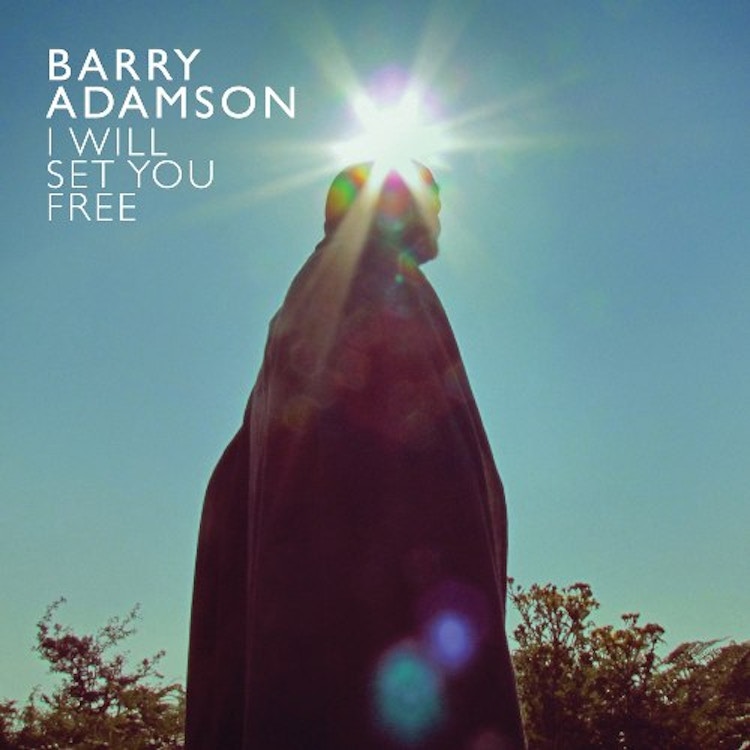"I Will Set You Free"

Legends always need a companion to support their id. Whether it’s Don Quixote’s Sancho Panza or Sherlock’s Dr Watson, our heroes of folklore need a trusted squire to fulfil their destinies. So it is with pop music; its revered stars gaining critical acclaim and getting name-dropped with aplomb while vying for an ATP curatorship, but rarely is it possible without a reliable buttress.
This is Barry Adamson’s role, the smoke machine operator for David Copperfield’s illusions, the shadow man of Magazine, Visage and The Bad Seeds. Yet it’s through this patronage that Adamson has been able to fulfil his passion for dark outsider soundscaping: While Devoto grew into iconography and Nick Cave became the boatman reaper, Adamson tilted towards the gritty realism of the streets on the sinisterly urban Moss Side Story and life’s bleak underbelly with the Mercury nominated Soul Murder.
Adamson’s timely creation of jazz-noir, sample-laced narration on Soul Murder saw him pioneer a pulp-Elroy soundtracking which would be adopted by mid-’90s Bowie and introduced darkness in to day-glo electronica. It’s a paradigm which is utilised on I Will Set You Free, an album which balances elements that have emerged from Adamson’s mind over the last 35 years.
I Will Set You Free is Adamson’s MOR record, avoiding the cinematic ranges of his compositions while shunning Back To The Cat‘s plodding blues. Nevertheless, it gets off to a punishing start, the guttural bass grind of ‘Get Your Mind Right’ nodding heavily towards The Bad Seeds at their most raucous with guitars and Hammonds interlocked in a soloing duel. This aural underpinning allows Adamson’s vocals too veer uncontrollably from Nick Cave gurns to Scott Weiland inflections via general warbling, as though adopting competing characters for his tales – and it doesn’t quite work.
The album schizophrenically jumps into the jazzy stomp of ‘Black Holes In My Brain’ which is a Blue Velvet take on Faith No More’s ‘Evidence’ without the mystery, that resorts to confused repetition. I Will Set You Free clearly shows a man brimming with ideas, but needs an A to Z to give it direction. Adamson is out of his soundtrack comfort zone so resorts to storyboarding his imagination without an editor.
This wealth of unchecked ideas continues as the record takes a jolt towards Scott Walker-esque ’70s sci-fi on ‘Turnaround’, but this TV crooning is short-lived before Adamson suddenly parodies Jack Johnson for the breezy beach of ‘The Power of Suggestion’. And so the album continues, jumping from one style to another with the Marrillion-goes-garage punch of ‘Destination’ quickly making way for the record’s truly cinematic high point.
Finally I Will Set You Free finds its feet, and it’s exactly what Adamson does best: deep industrial synths, popping between Man From Uncle tremolo and cold war chic, orbit ‘The Trigger City Blues’; while ‘Looking For Somebody To Love’’s harpsichord and grooving bass, complementing a drizzly lonesome trumpet, mirror the unresolved wandering off into the sunset of the protagonist. Has he got the girl? We’ll never know. However, I Will Set You Free soon jettisons this gravitas by returning to crooned balladeering and a spot of Casio rhumba.
It’s an old cliché for outsider composers to write a soundtrack for an unwritten film, but we need to ensure Adamson never makes this film. There are flashes of his genius on display, where his unique world view still flourishes, but the album is lyrically weak with no notable quotes, and treads boards first polished 20 years ago. Having said that, the ideas and innovation that Adamson thrives on are an essential part of modern music and still retain a unique edginess.
Get the Best Fit take on the week in music direct to your inbox every Friday

Great Grandpa
Patience, Moonbeam

Deafheaven
Lonely People With Power

Perfume Genius
Glory





